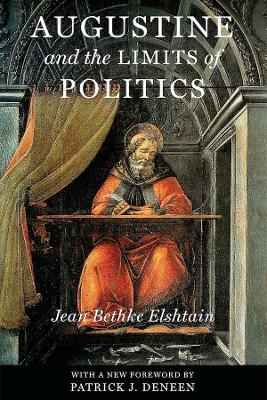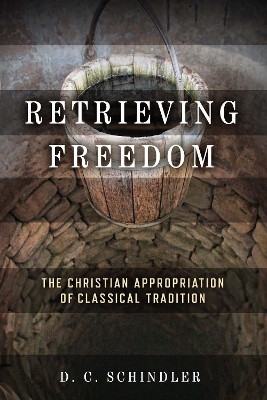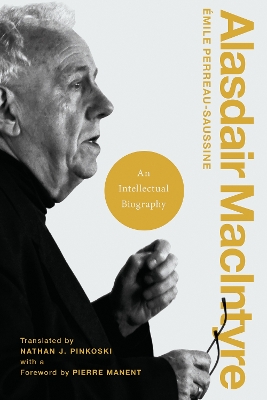Catholic Ideas for a Secular World
3 total works
Now with a new foreword by Patrick J. Deneen.
Jean Bethke Elshtain brings Augustine's thought into the contemporary political arena and presents an Augustine who created a complex moral map that offers space for loyalty, love, and care, as well as a chastened form of civic virtue. The result is a controversial book about one of the world's greatest and most complex thinkers whose thought continues to haunt all of Western political philosophy. What is our business "within this common mortal life?" Augustine asks and bids us to ask ourselves. What can Augustine possibly have to say about the conditions that characterize our contemporary society and appear to put democracy in crisis? Who is Augustine for us now and what do his words have to do with political theory? These are the underlying questions that animate Jean Bethke Elshtain's fascinating engagement with the thought and work of Augustine, the ancient thinker who gave no political theory per se and refused to offer up a positive utopia. In exploring the questions, Why Augustine, why now?
Elshtain argues that Augustine's great works display a canny and scrupulous attunement to the here and now and the very real limits therein. She discusses other aspects of Augustine's thought as well, including his insistence that no human city can be modeled on the heavenly city, and further elaborates on Hannah Arendt's deep indebtedness to Augustine's understanding of evil. Elshtain also presents Augustine's arguments against the pridefulness of philosophy, thereby linking him to later currents in modern thought, including Wittgenstein and Freud.
Retrieving Freedom is a provocative, big-picture book, taking a long view of the “rise and fall” of the classical understanding of freedom.
In response to the evident shortcomings of the notion of freedom that dominates contemporary discourse, Retrieving Freedom seeks to return to the sources of the Western tradition to recover a more adequate understanding. This book begins by setting forth the ancient Greek conception—summarized from the conclusion of D. C. Schindler’s previous tour de force of political and moral reasoning, Freedom from Reality—and the ancient Hebrew conception, arguing that at the heart of the Christian vision of humanity is a novel synthesis of the apparently opposed views of the Greeks and Jews. This synthesis is then taken as a measure that guides an in-depth exploration of landmark figures framing the history of the Christian appropriation of the classical tradition. Schindler conducts his investigation through five different historical periods, focusing in each case on a polarity, a pair of figures who represent the spectrum of views from that time: Plotinus and Augustine from late antiquity, Dionysius the Areopagite and Maximus the Confessor from the patristic period, Anselm and Bernard from the early middle ages, Bonaventure and Aquinas from the high middle ages, and, finally, Godfrey of Fontaines and John Duns Scotus from the late middle ages. In the end, we rediscover dimensions of freedom that have gone missing in contemporary discourse, and thereby identify tasks that remain to be accomplished. Schindler’s masterful study will interest philosophers, political theorists, and students and scholars of intellectual history, especially those who seek an alternative to contemporary philosophical understandings of freedom.
This award-winning biography, now available for the first time in English, presents an illuminating introduction to Alasdair MacIntyre and locates his thinking in the intellectual milieu of twentieth-century philosophy.
Winner of the prestigious 2005 Philippe Habert Prize, the late Émile Perreau-Saussine’s Alasdair MacIntyre: Une biographie intellectuelle stands as a definitive introduction to the life and work of one of today’s leading moral philosophers. With Nathan J. Pinkoski’s translation, this long-awaited, critical examination of MacIntyre’s thought is now available to English readers for the first time, including a foreword by renowned philosopher Pierre Manent.
Amid the confusions and contradictions of our present philosophical landscape, few have provided the clarity of thought and shrewdness of diagnosis as Alasdair MacIntyre. In this study, Perreau-Saussine guides his readers through MacIntyre’s lifelong project by tracking his responses to liberalism’s limitations in light of the human search for what is good and true in politics, philosophy, and theology. The portrait that emerges is one of an intellectual giant who comes to oppose modern liberal individualism’s arguably singular focus on averting evil at the expense of a concerted pursuit of human goods founded upon moral and practical reasoning. Although throughout his career MacIntyre would engage with a number of theoretical and practical standpoints in service of his critique of liberalism, not the least of which was his early and later abandoned dalliance with Marxism, Perreau-Saussine convincingly shows how the Scottish philosopher came to hold that Aristotelian Thomism provides the best resources to counter what he perceives as the failure of the liberal project. Readers of MacIntyre’s works, as well as scholars and students of moral philosophy, the history of philosophy, and theology, will find this translation to be an essential addition to their collection.


